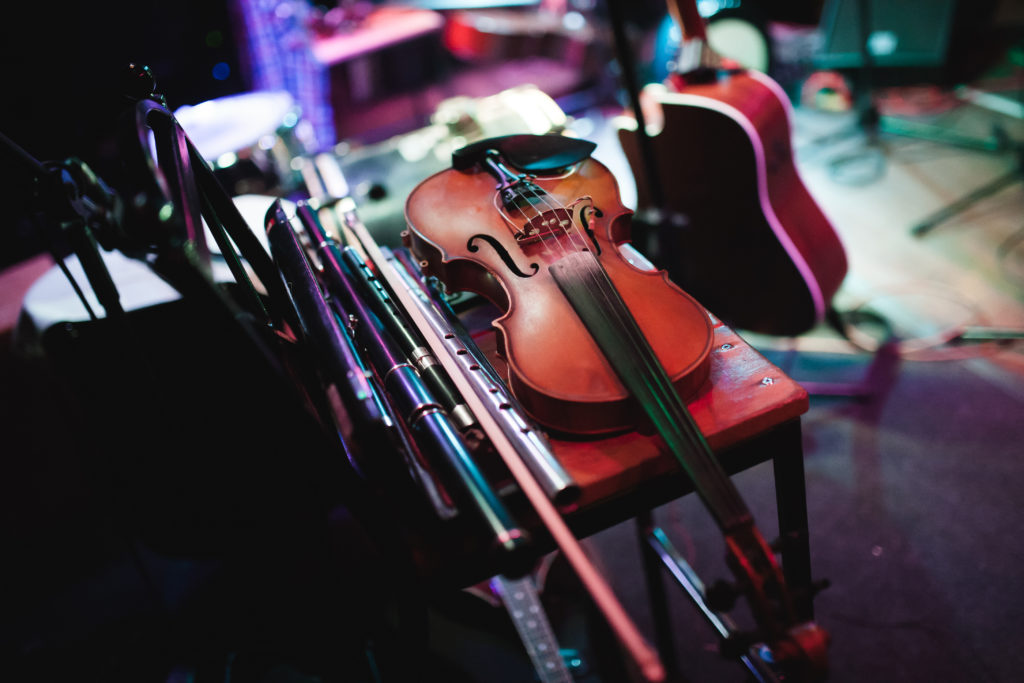A course in traditional music might be a consideration for you if you are you interested in honing your music skills and taking on a new challenge. It may also be of interest if you are you trying to get into the world of music and have a penchant for traditional Irish music.
What is traditional Music?
Ireland is renowned worldwide for its rich heritage and culture and no less so for its variety of musicians and musical artists. There are a number of instruments specific to traditional Irish music and as a general rule of thumb, the music of Ireland is used to tell stories.
Musical history dates back as far as the Celts in Ireland, where songs and pieces were used to recant the tales of brave celtic warriors and vengeful pagan gods. From then onwards, Ireland has told its rich and bloody history through the medium of music, music to the acclaim of the rest of the world.
Traditional Irish Instruments
The harp was the most dominant sound in Ireland long after the Celts had made way to the Vikings and the modern era, enjoying popularity from the 10th right up until the 17th centuries. While not a whole lot is known about how exactly the Celts used music or expressed themselves through it, we do know that it had already become an important part of life by the Middle Ages. Anyone proficient in the harp could earn themselves a very nice living playing in the courts of the chieftains, as the harp and harpists were held in very high regard along with poets and other artistically inclined people. During the course of a music class, students will have the opportunity to learn about the history and cultural significance of traditional irish music, that still resonates with its people today.
Traditional Musical Instruments
There are a number of traditional Irish instruments, and most classes will teach a variety of them, from beginner to expert level. Classes will also teach technique and the history of the instrument as well. Some examples of traditional Irish instruments are as follows:
Bodhrán – A hand held drum that is played by beating it with a beater or a tipper. They come in various sizes and some can be tuned to achieve different tones and pitches. motion. The bodhrán is always played vertically, resting on the musician’s knee. They will place their ‘free’ hand on various parts of the interior of the drum to control the pitch and timbre.
Fiddle – The fiddle is what trad musicians call a violin. It is the same instrument just played in a very different manner for Irish Trad music.
Tin Whistle – The tin whistle, or penny whistle, is a simple wind instrument very common in trad music.
Uilleann Pipes – These are very similar to bagpipes, however they are not as loud and have a wider octave range than their Scottish cousins.
Concertina – not Irish in origin but used in most Irish jigs and reels and sometimes referred to as a squeeze box or a malojan, it is a small instrument like an accordion.
Harp – The Harp is commonly known as Ireland’s native instrument. It appears on our coins and notes and all of our government documentation. Harps come in three different sizes and each one gives a different sound.
Why Study Traditional Irish Music?
Depending on the course you choose there are a number of different possible outcomes from embarking in the study of Trad music. The student of these courses might just want to learn a new musical style if they are already a musician, and then begin gigging or playing in public. You might want to learn a new instrument from scratch for your own entertainment.
Learners will also develop a vast knowledge of Irish history which could be beneficial in other areas of interest like the study of history, teaching, writing or research. It may also be possible to go on to teach other people how to play music after completion of the course, or maybe you just want to reconnect with your heritage in a fun and engaging way.
Whatever the reason you wish to begin a study path in Traditional Irish Music, there are a large number of courses available across the country for all levels of education and for a variety of possible end results.
Find traditional music courses near you on Courses.ie












Comments